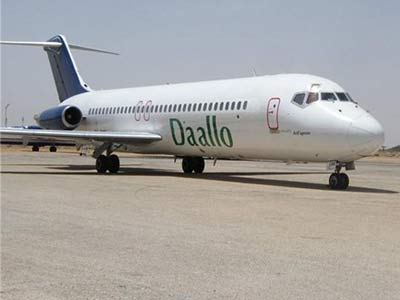
A suspected suicide bomber who blew a hole in the fuselage of a Daallo Airlines plane last week and forced it to make an emergency landing in Mogadishu was meant to be on a Turkish Airlines flight.
Mohamed Daallo, the Airline’s Chief Executive, said this on Monday.
The bomber was sucked out of the plane through a one-meter wide hole when the blast ripped open the pressurised cabin in mid-air, officials said.
The report said that the pilot landed the plane in the Somali capital, from where it had taken off.
No group has so far taken responsibility for the attack but a U.S. government source last week said the United States suspects Islamist militant group al Shabaab, which is aligned to al Qaeda, was responsible for the blast.
Daallo Airlines said that most of the passengers who were on the bombed flight were scheduled to fly with Turkish Airlines, but were ferried to Djibouti by one of its planes after the Turkish carrier cancelled its flight, citing bad weather.
“That particular passenger, who was behind the blast, boarded the aircraft on a Turkish Airlines, a boarding pass and was on the list for the Turkish Airlines manifest,” Yassin told Reuters by telephone from Dubai.
Yassin said Daallo picked up the 70 stranded Turkish Airlines passengers to fly them to Djibouti, including the suicide bomber. In total, the flight had 74 passengers.
Turkish Airlines did not immediately respond to a request for comment.
Somalia, mired in conflict since civil war broke out in 1991, has few air links outside East Africa. In 2012, Turkish Airlines became the first major international commercial airline to fly out of Somalia in more than two decades. (Reuters/NAN)



